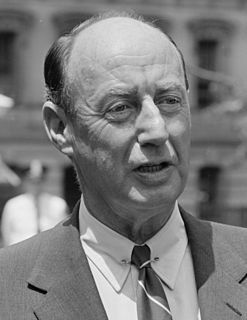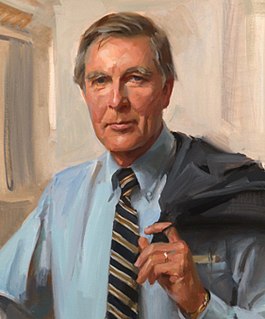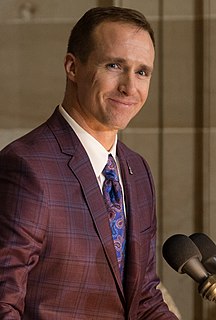A Quote by Leslie Fiedler
I think the pattern of my essays is, A funny thing happened to me on my way through Finnegans Wake.
Related Quotes
If an artwork never gets any attention from anybody, then obviously it's got problems. If it gains attention from a very small elite, then it's presumably doing something. Finnegans Wake gets a lot of attention from certain people who become passionate about it, who are usually very good readers in general. Although - I often talk about costs and benefits - it seems to me the costs of reading Finnegans Wake are not worth the benefits, however many there may be. And it's the same with the more arcane among poets, Zukofsky and so on.
I've been through legislation creating a dozen national parks, and there's always the same pattern. When you first propose a park, and you visit the area and present the case to the local people, they threaten to hang you. You go back in five years and they think it's the greatest thing that ever happened.
Somebody told me that if you wake up every day and do stuff that's easy, then you're doing the wrong thing. If you wake up every day and do stuff that's really hard and you manage to get through to people, then you're doing the right thing. They might have just fooled me by telling me that, but it worked. I think that's my philosophy.
I'm not offended. Lenny Bruce taught me that everything's funny. You can make everything funny. I don't think that assassinations are funny, I don't think you can make fun of ISIS, but almost everything is funny. And If we can't laugh at ourselves, who can we laugh at? So I don't mind ethnic humor. I like ethnic humor. I like dialect jokes. Laughter is a very subjective thing. If it's funny to you it's funny. And a lot of things are funny to me.
I think [James] Joyce sometimes enjoyed misleading his readers. He said to me that history was like that parlor game where someone whispers something to the person next to him, who repeats it not very distinctly to the next person, and so on until, by the time the last person hears it, it comes out completely transformed. Of course, as he explained to me, the meaning in Finnegans Wake is obscure because it is a 'nightpiece.' I think, too, that, like the author's sight, the work is often blurred.






































